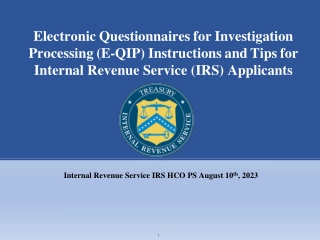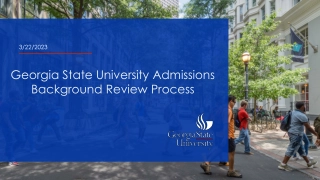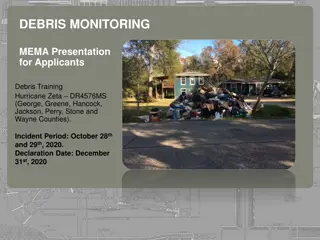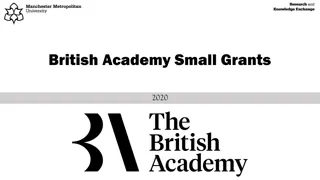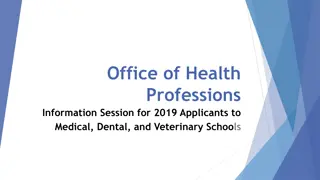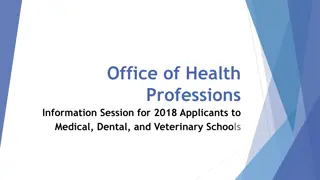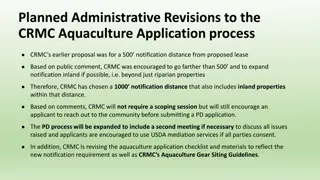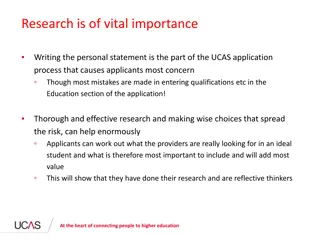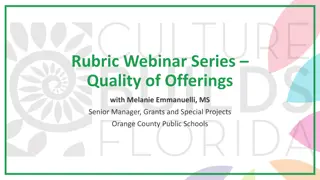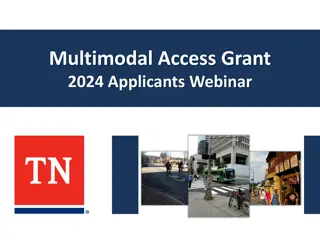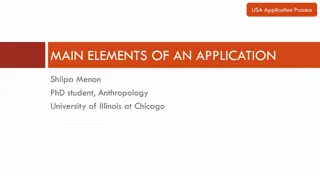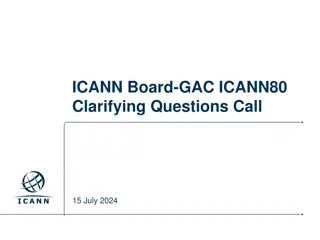
Funding Opportunities and Support for Doctoral Training in North-West UK
Discover the NWCDTP, offering funding and support for doctoral training in North-West UK institutions like Liverpool, MMU, Salford, and more. Learn about schemes, application processes, and recruitment timetables for aspiring PhD students.
Uploaded on | 0 Views
Download Presentation

Please find below an Image/Link to download the presentation.
The content on the website is provided AS IS for your information and personal use only. It may not be sold, licensed, or shared on other websites without obtaining consent from the author. If you encounter any issues during the download, it is possible that the publisher has removed the file from their server.
You are allowed to download the files provided on this website for personal or commercial use, subject to the condition that they are used lawfully. All files are the property of their respective owners.
The content on the website is provided AS IS for your information and personal use only. It may not be sold, licensed, or shared on other websites without obtaining consent from the author.
E N D
Presentation Transcript
Applicant workshop 2024/25 JEROME DE JEROME DE GROOT GROOT
What is the NWCDTP? We fund doctoral training in the North-West Our institutions are: Liverpool, MMU, Salford, Keele, Lancaster, RNCM, Manchester Our key partners are: BBC, British Library, FACT, FutureEverything, HOME, Science and Industry Museum, Tate, Opera North, Staffordshire and Stoke-on-Trent archives Information here: http://www.nwcdtp.ac.uk/funding-prospective- students/
The support we offer The payment of approved fees to the institution A maintenance grant
Outline +2 Scheme (Two/ Four PT years Doctoral Study For current first year students only) This scheme will provide support for up to two years of full time study, or four years of part-time study for students who are currently registered on the first year of a programme leading to the award of a doctoral degree. Students in their second or third year will not be eligible for funding. +3 Scheme (Three/ Six PT years Doctoral Study) This scheme will provide support for up to three years of full-time study, or six years of part-time study, on a programme leading to the award of a doctoral degree. Note: In most cases studentships will be awarded for 3 years initially (or 6 years part-time), but applicants can apply to extend the funded period to 3.5 or 4 years (or part-time equivalent), if their project: Involves a period of intensive skills development (e.g. difficult language learning) identified at application or during the first year of funding (in discussion with the supervisory team) Involves additional or complex methodologies requiring additional training identified during the first year of funding (in discussion with the supervisory team) Includes a placement with a partner organisation applied for at any point during the funded period.
How it works Students apply to an institution, and then to the NWCDTP The institution nominates a certain number of students per Pathway (we have 15 Pathways) Pathway committees made up of representatives from each institution then nominate a certain number of students to a final allocation committee This committee makes final decisions http://www.nwcdtp.ac.uk/funding-prospective-students/pathways/
Recruitment timetable The deadline for applications to be submitted is 5pm GMT on 3 February 2024. To apply for an award, candidates must have applied for a place on a programme at ONE of the seven NWCDTP institutions by 13 January 2024 Please note some institutions may have earlier deadlines. Candidates must submit a NWCDTP Funding Application by 3 February 2024 (5pm) in order to be considered. The Studentship Allocation Committee will take place in April 2024. Students will start their PhD in September 2024.
Eligibility The NWCDTP is committed to working with applicants from underrepresented communities and those from non-traditional academic backgrounds. You will be able to demonstrate your talent and your experience on the application form, and your referees can also provide additional information that we might need to make our decision. Successful applicants typically have qualifications equivalent to a good honours degree (first or upper second class level) from an academic higher education institution. You should normally possess or be studying for a postgraduate degree. You may also present evidence of practical or professional experience. Applicants must be planning to study on an NWCDTP Pathway Degrees gained outside the UK are recognised. The NWCDTP bases its assessments of qualifications attained outside the UK on the British Council s NARIC guide. For non-UK qualifications, transcripts in English as well as details in the original language must be provided with the application form.
Targeted studentships Applicants wishing to apply for one of the ring-fenced studentships will have the opportunity to identify themselves on the application form as wishing to be considered for these targeted studentships. Their applications will be considered as part of the standard award competition and will be subject to the same assessment criteria and schedule http://www.nwcdtp.ac.uk/equality-diversity-inclusion-sustainability/
Targeted studentships Global Majority or Global Majority heritage studentship recognising that our PGR cohort does not reflect the diversity of the UK population, this studentship is open to a Global Majority or Global Majority heritage candidate. This studentship is available for Home candidates.
Targeted studentships Broken Pipeline studentship recognising the clear inequality within the HE sector this studentship is for a UK-domiciled candidate from an underrepresented group or background. This studentship is for candidates who feel that they are from groups or backgrounds that are underrepresented within UK Higher Education and experience barriers to access and participation. These are for Home students only. Many of these groups or backgrounds intersect and overlap and can pose barriers to equality of opportunity. These groups (with links to definitions and further information) are explained below: You live in a geographical area where access to UK Higher Education is statistically low. You can check whether this applies to you through POLAR an online tool that classifies small areas across the UK according to the participation of young people in higher education; You identify as having a disability. The term disability is quite broad, and further definitions of what might be considered a disability can be found under the Equality Act 2010; You are a first-generation student (you are the first person in your family to go to university at undergraduate and postgraduate level); You are a mature student (you were aged 21 or over when you started your first undergraduate course); You are care-experienced or a carer. You are an estranged student studying without family support due to a breakdown in relationship
International students To be classed as a Home student you must meet the following criteria: Be a UK National (meeting residency requirements), or Have settled status, or Have pre-settled status (meeting residency requirements), or Have indefinite leave to remain or enter If you do not meet the criteria above, you will be classed as an International student. From 2021 we will be admitting international students; We can take up to 30% of students in this way All funded PhD students, whether UK or International will be eligible for a full award which includes a stipend to support living costs, and fees at the standard UKRI home fee rate. It is crucial to note that studentships will only cover tuition fees up to the Home rate. This is 4,596 in 2023/24 (exact rate for 2024/25 subject to confirmation from UKRI). International tuition fees are usually substantially higher than this sum. In some institutions, these additional tuition fees may be paid for in a form of an additional bursary to the DTP studentship, but in other cases it may be necessary for international students (including EU and EEA) to secure additional funding to cover the additional fees. It is therefore crucial that international students contact their local PGR Administrator (see appendix 2) before applying, to find out what the local arrangements are for your programme.
General application principles Your entire application should show Your ability to undertake high-level research Your skills in writing and research How this will develop your career How any experience contributes
Your proposal Identify a research problem Identify a supervisory team Then write the application bearing in mind the following criteria: Clear Rigorous Original Well-designed Doable Fit
Practice as research Practice as research proposals: particular things to keep in mind: Research undertaken through an arts practice Be clear about your motivation How will your practice work as a research method? How will you contribute to knowledge ?
Fit Why is your application particularly suitable to NWCDTP? Supervisory team Possible work with partners ways in which you might work with the partners Possible placement Key resource in the region Knowledge exchange or widening participation Community outreach and audience development Collaborators in the region Inter-institutional or inter-disciplinary approach Communities of research as practice
Grade 9-10 Descriptor Outstanding proposal in terms of both cogency and originality. The research questions are excellent, there is strong engagement with the wider field, the methodology is appropriate and perhaps innovative. The intellectual importance of the project is clear and the proposal outlines in detail the contribution that the project will make to the field. The supervisory team is excellent and the research is feasible within the period of study. The project fits very well within the NWCDTP. A high priority for funding. The Research Proposal The quality of the research proposal is judged in terms of (i) cogency of exposition, (ii) structure and rigour, (iii) originality, (iv) design of the research and its feasibility, and (v) fit of the project with supervisory team and NWCDTP. The assessors will look for evidence of an ability to articulate a research project, a coherent plan for doctoral study, and a good awareness of the place of the research within the current field. A very strong proposal outlined clearly. Research questions are clear and well outlined, there is an understanding of the methodology is appropriate. The candidate makes a good case for the intellectual importance of the project. The supervisory team is well matched to the project. The project fits within the NWCDTP. The research is likely to be feasible within the period of study. Worthy of considering for funding. 7-8 wider field and the
Grade 9-10 Descriptor An outstanding candidate with strong evidence of exceptional academic, practical, or professional achievement. Candidates in this zone would typically have achieved a high first/ Distinction, predominantly in the range 75-80, and in some cases at 80+ (or clear evidence that they have the potential to reach that level). Candidates in this zone will often have been awarded academic, artistic, professional or other prizes. If appropriate impressive professional or practical experience is outlined in detail. Excellent references discuss in detail the candidate s high-calibre intellectual background, suitability for research, and research skills. Candidate demonstrates excellent potential for original independent research and a strong sense of the importance of doctoral study to their career development. To be funded as a matter of priority. A very strong candidate with excellent academic, practical, or professional achievement. Candidates in this zone would typically have achieved a predominantly in the range 70-75 (or clear evidence that they have the potential to reach that level). If appropriate good professional or practical experience is outlined. References are strong and discuss the candidate s ability and suitability for research. Candidate shows good potential for original independent research and a sense of the importance of doctoral study to their career development. Worth considering for funding. The Candidate Panels will assess the candidate s preparedness for research based on (i) career information provided in the application (including information on marks achieved so far as reported in the references and/or transcripts), as well as any relevant practical or professional achievement, (ii) references, (iii) relevant previous experience (academic and professional) including technical competence such as language skills, and (iv) how the programme of study will contribute to their long-term career plans. 7-8 first class/ Distinction,
References important!! Ensure that they refer to fit Ensure that they refer to your track record and ability to undertake research Ensure that they outline any experience that may be relevant and important to your application Ensure that they discuss your project and its importance If you are an international student, ensure they explain anything particular to your qualification
Contacts DTP Director: Jerome.degroot@Manchester.ac.uk DTP Manager: Carole.arrowsmith@Manchester.ac.uk DTP Administrator: Francesca Roncoli via NWCDTP@Manchester.ac.uk DTP Placement Officer: beth.taylor@Manchester.ac.uk EDI Advocate: H.J.Helm@edu.salford.ac.uk Website: www.nwcdtp@Manchester.ac.uk Twitter: @NWC_DTP

